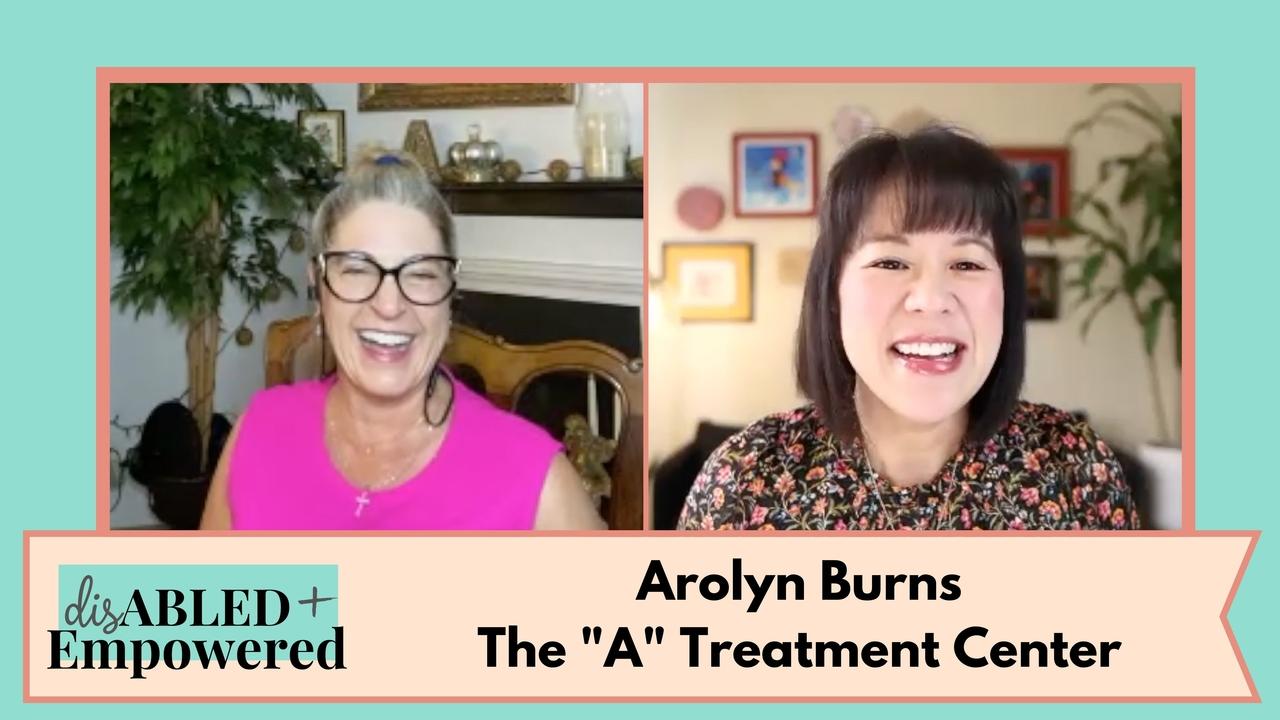Squashing Fear and Reclaiming Life for Neurodivergent Individuals | An Interview with Arolyn Burns

Whiteout
What is trauma? In my line of work, I've run across this repeatedly and see the paralysis it delivers to my clients. It seriously breaks my heart. So, with the desire to improve my own skills, I reached out to one of our local experts and a wonderful colleague of mine to talk about trauma.
Arolyn Burns is a Licensed Therapist and the Director of The "A" Treatment Center. She specializes in the treatment of trauma, anxiety, fears, and phobias. Arolyn's bag of therapeutic tricks reminds me of Mary Poppins' carpetbag, unbounded, and without limits. From hypnotherapy to EMDR to using rocks for grounding, Arolyn is a creative and masterful therapist, individualizing treatment to help her clients face their fears.
Arolyn uses the term "whiteout" to describe what fear feels like when traumatized. When triggered by fear at this level, it's like snowfall is blocking a person's entire vision, the person can't think, and then shuts down. Trauma is an event that triggers a negative internal, or physiological, reaction. When fearful, a person perceives the situation as life or death and this prompts a reflexive physiological response to be safe.
The variables in the equation matter
Putting aside my weak math skills, Arolyn helped enlighten me on the differences in fear responses and how you can see combinations like equations. I've always known about fight, flight, or freeze responses when someone is fearful. For those of you who don't know these terms, "fight" is when a person attacks or fights when fearful; "flight" is when a person flees, avoids, or escapes a fearful situation; and "freeze" is when someone is paralyzed or stuck when fearful.
In her intake, Arolyn asks her clients if they are "fighters, flighters, or freezers." This question really helps Arolyn to get to know her clients' response style very quickly. Many times, her clients don't know the answer to this question, so asking the question really helps to drive insight, introspection, and reflection, all things that are good when understanding and managing fear responses.
Arolyn notices that when a person feels powerful and fearful, they typically fight. However, when a person feels powerless and fearful, they typically flight or freeze. Understanding how the perception of power plays a role in fear responses is helpful in supporting others to develop their own carpetbag of tricks.
Safety first
Before Arolyn begins treatment, she seeks to understand her clients. This is critical, as every person experiences life differently. What may be triggering for one person may not be for another. Arolyn cited a few studies that found that identical twins and even cojoined twins have different responses to fear. We must seek to understand what someone's narrative and experience are before we jump into treatment. I find that this is especially true for neurodivergent individuals. Many of my clients perceive and encode the world differently due to their cognitive styles, sensory differences, and social understanding. Getting a very clear understanding of who my clients think they are vs. who others think they are is key.
Comprehensively understanding clients is not just about asking the right questions, it's about creating a safe space to do so. Safe spaces promote a culture of curiosity vs. judgment. These spaces accept clients as they are, help contain fears and worries, and help to add dialogue or subtitles to thoughts, feelings, and experiences. Safe spaces promote empathy, communication, and advocacy. Most of all, safe spaces give freedom and permission for clients to identify what works and doesn't work for them. Clients are trusted in this space no matter the presence of a disability or not.
🌟 DREAM BIG 🌟
This is Arolyn's hope for everyone. She wants her clients to dream big. She wants to empower her clients with skills to survive their fears, to face the unknown, and to take the steps (no matter how small) to live life fully. Because life is short, Arolyn wants her clients to squash fear in order to become who they want to become and to capture all the opportunities that life has to offer.
Arolyn's energy and zest for life are infectious and her encouragement and message of hope are inspirational. Check out our interview and see for yourself. Thanks to Arolyn for spending time with me, for sharing her expertise, and for inspiring us all!
To find out more about Arolyn and her private practice, check out her website: https://www.theatreatment.com/
